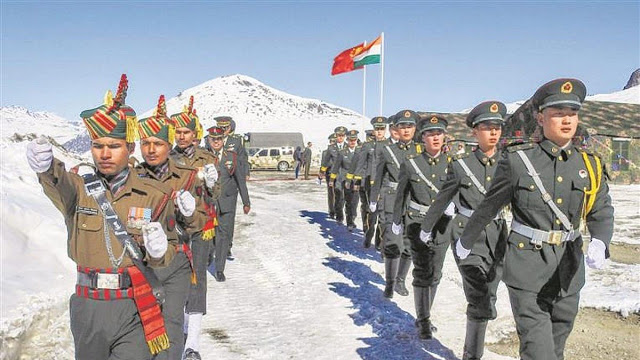India blames Chinese attempts to “unilaterally change the status quo” for escalation in border tensions
The casualties on the border are the first ones since 1975 signalling an escalation of the border stand-off.

By IAR Desk
India has blamed the China for the escalation in violence between Indian forces and Chinese army – the People’s Liberation Army (PLA) – that took place in the Galwan Valley at the Line of Actual Control (LAC) on the late evening and night of June 15th.
“On the late-evening and night of 15th June, 2020 a violent face-off happened as a result of an attempt by the Chinese side to unilaterally change the status quo there. Both sides suffered casualties that could have been avoided had the agreement at the higher level been scrupulously followed by the Chinese side,” the Ministry of Foreign Affairs said on Tuesday evening, June 16th.
Three Indian soldiers and an Indian army officer lost their lives in the skirmish, initial reports said.
However, latestlreports indicate that at least 20 Indian soldiers have been killed.
Five Chinese soldiers are also said to have died though there has been no official Chinese statement confirming the deaths on the Chinese side.
” India and China have been discussing through military and diplomatic channels the de-escalation of the situation in the border area in Eastern Ladakh.
However, Editor in Chief of the Chinese mouthpiece Communist Party mouthpiece Global Times said “Based on what I know, Chinese side also suffered casualties in the Galwan Valley physical clash,” in a tweet.
Senior Commanders from both the Indian and Chinese sides had a productive meeting on 6th June 2020 and had agreed on a process for such de-escalation. Subsequently, ground commanders had a series of meetings to implement the consensus reached at a higher level.
The casualties on the border are the first ones since 1975 signalling an escalation of the border stand-off.
“While it was our expectation that this would unfold smoothly, the Chinese side departed from the consensus to respect the Line of Actual Control (LAC) in the Galwan Valley,” the Ministry of External Affairs said in a a statement.
“Given its responsible approach to border management, India is very clear that all its activities are always within the Indian side of the LAC. We expect the same of the Chinese side.”
Expressing conviction and firm resolve to maintain “peace and tranquillity in the border areas and the resolution of differences through dialogue”, India said that it remained “strongly committed to ensuring India’s sovereignty and territorial integrity.”